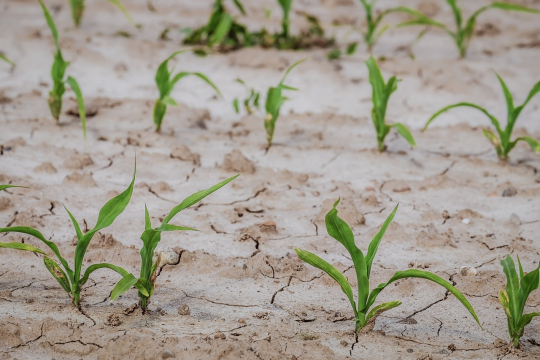Several studies have warned that climate change is changing the droughts, making them more frequent, severe, and long-lasting. EfD Chile researchers Felipe Vásquez-Lavin and Roberto D. Ponce, alongside other investigators, evaluated the economic impact of droughts agriculture, the urban drinking water sector, and the rural drinking water sector in Central Chile.
Quantifying the economic impacts of drought is key for decision-making to build future strategies and improve the development and implementation of proactive plans. Changes in drought frequency, intensity, and duration due to climate change result in greater cumulative economic losses for water users.
The researchers addressed the problem from two approaches: looking into the past to evaluate the economic impacts observed from 2010 to 2020 and looking forward to evaluating what the economic impact would be (only to the urban drinking water sector).
Several factors determine the impacts of droughts
While anyone could expect significant negative economic impacts in longer drought scenarios, the impact of prolonged drought is also determined by the resilience and reaction capacity of the region and water users, which in turn is affected by factors such as infrastructure capacity, the amount of stored water, and short- and long-term responses.
Chile has developed an important infrastructure capacity that has allowed it to overcome more than 13 years of drought. However, in recent years, the water stored in this infrastructure has been drastically reduced, resulting in restriction policies that have been applied in the Metropolitan Region.
Water storage management requires considering different sources and uses of water. Groundwater, on the one hand, is a non-renewable resource difficult to manage and replenish, making it vulnerable to overexploitation. Surface water on the other hand has large storage volumes but is very vulnerable to prolonged droughts.
Certain extreme climate events can cause temporary gaps between supply and demand that require joint management of surface and groundwater. For instance, during a megadrought, the challenges are maintaining enough water reserves to prevent drought and avoid overuse that depletes surface reservoirs and overpumping that depletes groundwater.
Short- and long-term responses
Especially in agriculture, short-term responses have allowed farmers to overcome the negative economic impacts of drought. These measures are largely supported by water stored in aquifers and reservoirs. There have been political public responses that help farmers implement short-term measures.
Learning from previous droughts to develop long-term responses has been especially noticeable in the hydroelectric sector. After the droughts of the late 1990s, there was a legislative and structural change that made it possible to reduce dependence on hydroelectric sources. Additionally, the current megadrought has promoted strategies and policies that seek to manage future droughts.
Building more resilience is crucial
This study emphasizes the importance of ensuring a sufficient water supply to fill storage capacity and maintain a resilient water system during droughts. Results show that the central zone of Chile has been a resilient region and that in one way or another, it has been learning and increasing this resilience. But it is uncertain whether Chile can maintain this level of resilience as droughts lengthen.
According to their research, despite this resilience, water restriction policies have emerged in recent years of drought, since the situation was very close to reaching a point where the costs would skyrocket.
The authors conclude that it is crucial to consider the economic impacts when infrastructure capacity and available water supply approach their limits. Therefore, public policy decisions must take into account the potential high costs of long-term droughts. Likewise, short-term responses, such as reducing water use and technology adoption, can affect water storage and flows either positively or negatively.
Authors: Francisco J. Fernández, Felipe Vásquez-Lavín, Roberto D. Ponce, René Garreaud, Francisco Hernández, Oscar Link, Francisco Zambrano & Michael Hanemann. Paper: The economics impacts of long-run droughts: Challenges, gaps, and way forward
By Belén Pulgar
